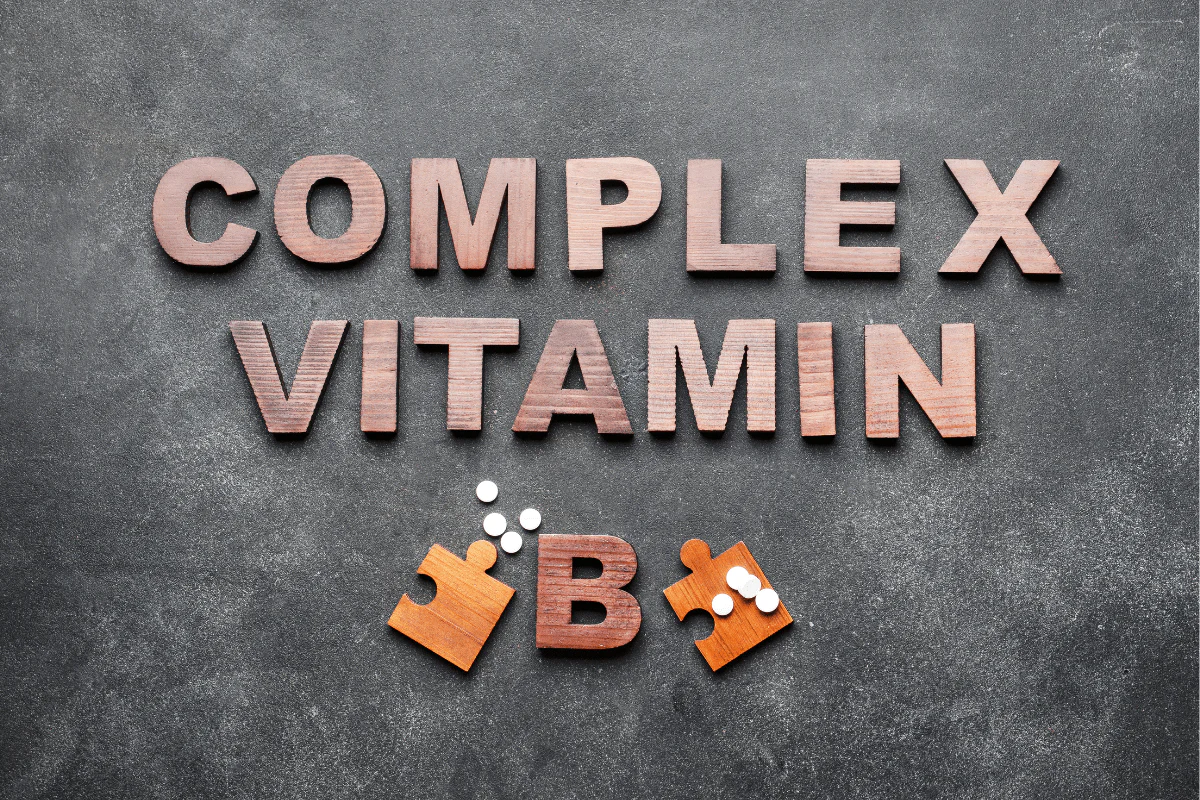Most people don’t realise how much their cognitive performance depends on a handful of water-soluble vitamins that your body can’t store. B-vitamins are involved in virtually every aspect of brain function, from producing neurotransmitters to maintaining the protective sheaths around your nerves. Yet despite their critical importance, B-vitamin deficiencies remain surprisingly common, even among health-conscious individuals.
At Simply Nootropics, we’ve seen firsthand how addressing B-vitamin status can transform cognitive performance, which is why these nutrients form the foundation of our TMG B-Complex formulation.
The eight B-vitamins work as a coordinated network, supporting everything from energy production to DNA repair. When this network functions optimally, your brain has the biochemical foundation it needs for peak performance. When it doesn’t, even subtle deficiencies can manifest as brain fog, mood instability, and cognitive decline.
The Methylation Connection
To understand why the best B complex matters for cognitive function, you need to understand methylation. This biochemical process involves adding methyl groups (CH3) to various molecules, including DNA, proteins, and neurotransmitters. Methylation controls gene expression, neurotransmitter production, and cellular repair throughout your body.
Several B-vitamins are essential cofactors in the methylation cycle. Folate (B9), vitamin B12, and vitamin B6 work together to convert homocysteine, a potentially toxic amino acid, into methionine, which then becomes S-adenosylmethionine (SAM-e), your body’s primary methyl donor. This process is crucial for producing dopamine, serotonin, norepinephrine, and other neurotransmitters that determine how you think and feel.
When methylation runs smoothly, your brain maintains optimal neurotransmitter balance. When it doesn’t, often due to B-vitamin insufficiency or genetic variations, you experience mental sluggishness, mood issues, and cognitive dysfunction.
Key B-Vitamins for Brain Health
Thiamine (B1)
Thiamine is essential for converting glucose into usable cellular energy. Since your brain consumes approximately 20% of your body’s glucose, adequate thiamine is crucial for mental energy and cognitive performance. Even marginal thiamine deficiency can impair working memory and processing speed, often presenting as persistent fatigue and difficulty concentrating.
Riboflavin (B2)
Riboflavin serves as a precursor to coenzymes involved in cellular energy production and antioxidant defence. In the brain, riboflavin helps regenerate glutathione, protecting neurons from oxidative damage. Clinical studies show high-dose riboflavin can significantly reduce migraine frequency, suggesting important neurological protective effects.
Niacin (B3)
Niacin converts to nicotinamide adenine dinucleotide (NAD+), crucial for cellular energy production, DNA repair, and activating longevity proteins called sirtuins. NAD+ levels decline with age, potentially contributing to cognitive decline. Niacin also supports neurotransmitter production and maintains healthy cholesterol levels.
Pyridoxine (B6)
B6 is involved in synthesising virtually every major neurotransmitter, including serotonin, dopamine, and GABA. It’s also vital for the methylation cycle, working with folate and B12 to maintain healthy homocysteine levels. The active form, pyridoxal 5′-phosphate, is more readily utilised than standard pyridoxine.
Folate (B9)
Folate is essential for DNA synthesis, repair, and methylation. It’s crucial for neurotransmitter production and maintaining healthy brain chemistry. Up to 40% of the population carries genetic variants that impair their ability to convert synthetic folic acid into the active methylfolate form, making supplement choice critical.
Cobalamin (B12)
B12 maintains the myelin sheath protecting nerve fibres and enables rapid signal transmission. It’s also essential for DNA synthesis and methylation reactions. B12 deficiency is common among older adults and vegetarians, often developing slowly with symptoms ranging from subtle cognitive changes to severe neurological issues.
Beyond the Basic Eight
While the eight B-vitamins are well-established, other related compounds support cognitive function. Inositol, sometimes called B8, plays important roles in cell membrane function and neurotransmitter signalling, particularly for mood regulation. Choline, though not technically a B-vitamin, works synergistically with B-vitamins to produce acetylcholine, crucial for memory and learning.
Para-aminobenzoic acid (PABA), once considered part of the B-complex, supports folate utilisation and may have independent cognitive benefits. These compounds highlight the interconnected nature of brain nutrition beyond the traditional vitamin classifications.
The Bioavailability Challenge
Not all vitamin forms are equally effective. Many supplements contain cheaper synthetic forms requiring conversion steps your body may not perform efficiently. This is particularly relevant for people with genetic variations affecting vitamin metabolism, surprisingly common in the population.
Methylcobalamin is more readily utilised than cyanocobalamin for B12, methylfolate bypasses genetic bottlenecks better than folic acid, and pyridoxal 5′-phosphate is more bioactive than standard pyridoxine. These distinctions become crucial when addressing cognitive function rather than simply preventing deficiency diseases.





